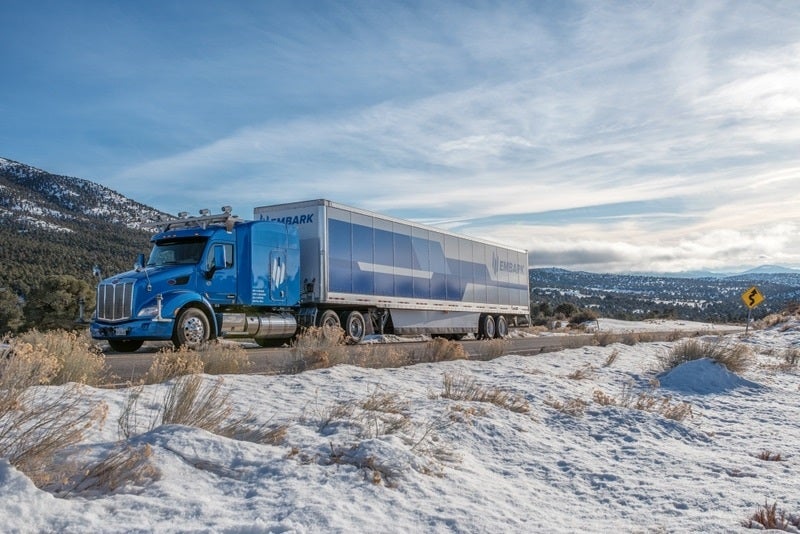A company launched by former Waterloo Engineering students has switched gears from self-driving shuttles to long-haul trucks.
Embark, which grew out of student startup Varden Labs, emerged from stealth mode last week after quietly working since the summer of 2016 to develop technology that allows trucks to go from one highway exit to another without intervention by a driver.

“We are committed to proving beyond a shadow of a doubt that this technology is safe and reliable,” said Alex Rodrigues, a co-founder and CEO of Embark, in a media release.
Rodrigues and Michael Skupien started Varden while they were second-year mechatronics engineering students at Waterloo. They were later joined by classmate Brandon Moak.
Varden won $25,000 in the Velocity Fund Finals and made news in the summer of 2015 when Feridun Hamdullahpur, president and vice-chancellor of the University of Waterloo, was driven around the ring road aboard its prototype shuttle - a modified, self-driving golf cart – meant for resorts, campuses and gated communities.
Testing underway in Nevada
The release from Embark, now based in California, announced the pivot into trucking and said the company is backed by a multi-million-dollar investment by Maven Ventures and high-profile angel investors in Silicon Valley.
Its first truck has reportedly already logged 10,000 miles in Nevada after getting approval earlier this year to do testing on public roads there.
The concept is for transport trucks to drive themselves on long, simple stretches of highway between cities. Once in urban areas, however, people would take over to drive them to their final destinations.